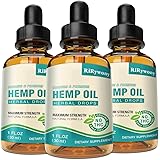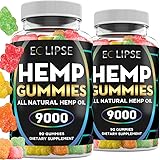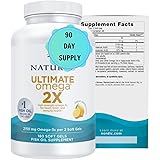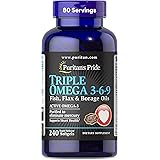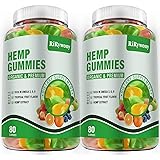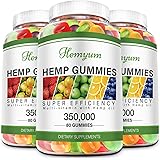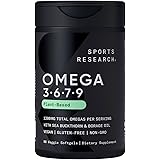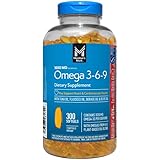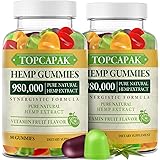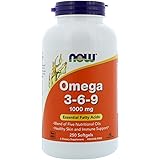Are you exploring cutting-edge solutions for optimal skin health, particularly those leveraging natural compounds? As highlighted in the accompanying video, CBD skincare has garnered considerable attention for its potential dermatological benefits. Cannabidiol, or CBD, is a fascinating cannabinoid derived from the cannabis plant, renowned for its diverse therapeutic properties. This comprehensive guide delves deeper into the scientific underpinnings of CBD’s efficacy in skincare, elucidates the critical factors in selecting high-quality products, and offers insights to empower your informed decisions regarding topical CBD application.
Understanding CBD in Skincare: A Deeper Dive into Cannabidiol
Cannabidiol (CBD) is one of over a hundred phytocannabinoids found in the cannabis Sativa plant. Unlike its counterpart THC, CBD is non-intoxicating, meaning it does not produce a “high.” Its profound interaction with the human body’s endocannabinoid system (ECS) is what underpins its potential for therapeutic applications, particularly in CBD skincare formulations.
The ECS is a complex cell-signaling system that plays a crucial role in regulating various physiological and cognitive processes, including immune response, pain, mood, and—significantly for our discussion—skin function. The skin itself possesses a complete ECS, replete with cannabinoid receptors (CB1 and CB2) and enzymes responsible for cannabinoid synthesis and degradation. Topical application of CBD allows for localized interaction with these receptors, modulating cellular activities directly within the epidermis and dermis, without systemic absorption.
Types of CBD for Topical Application
The efficacy and safety of a CBD skincare product can vary significantly based on the type of CBD extract used. Consumers typically encounter three primary forms:
- Full-Spectrum CBD: This extract contains all the natural compounds found in the hemp plant, including other cannabinoids (like trace amounts of THC, typically below 0.3%), terpenes, flavonoids, and essential oils. The synergistic effect of these compounds, often referred to as the “entourage effect,” is believed to enhance therapeutic outcomes.
- Broad-Spectrum CBD: Similar to full-spectrum, broad-spectrum extracts contain multiple cannabinoids and terpenes, but all detectable traces of THC are removed. This offers the benefit of the entourage effect without any concern for THC content.
- CBD Isolate: This is the purest form of CBD, where all other plant materials, including cannabinoids, terpenes, and flavonoids, have been removed. It is 99% pure cannabidiol. While potent in its singular form, it lacks the potential synergistic benefits of other plant compounds.
For CBD skincare, broad-spectrum and full-spectrum extracts are often preferred due to the enhanced anti-inflammatory and antioxidant properties conferred by the array of accompanying terpenes and flavonoids. These additional compounds may offer their own beneficial effects, contributing to a more comprehensive dermatological solution.
The Scientific Foundation of CBD’s Skincare Benefits
The video briefly touches upon CBD’s anti-inflammatory and antioxidant properties, which are indeed foundational to its utility in skincare. However, a deeper look reveals the intricate mechanisms by which cannabidiol interacts with cellular pathways to foster skin health.
Potent Anti-inflammatory Actions
Inflammation is a root cause of numerous skin concerns, including redness, swelling, irritation, and conditions such as acne, eczema, and psoriasis. CBD exhibits significant anti-inflammatory capabilities by interacting with various receptors and pathways involved in the inflammatory cascade. It has been shown to modulate cytokine production, which are signaling molecules that mediate and regulate immunity and inflammation. By downregulating pro-inflammatory cytokines and potentially upregulating anti-inflammatory ones, CBD can effectively soothe irritated skin and reduce visible inflammation.
Exceptional Antioxidant Power
Oxidative stress, caused by an imbalance between free radicals and the body’s ability to detoxify their harmful effects, is a primary contributor to premature skin aging and cellular damage. Free radicals are unstable molecules that can damage cellular structures, including collagen and elastin, leading to fine lines, wrinkles, and dullness. Research indicates that CBD is a more potent antioxidant than vitamins C and E, crucial antioxidants commonly found in skincare. By neutralizing these damaging free radicals, CBD helps protect skin cells, preserves skin elasticity, and contributes to a more youthful complexion.
Targeting Specific Skin Concerns with Cannabidiol
The versatility of CBD skincare extends to addressing particular dermatological issues, making it a valuable addition to many routines.
Alleviating Sensitive Skin and Reducing Redness
As mentioned in the video, a notable 2019 study published in the Journal of Clinical Investigation provided compelling evidence for CBD’s role in managing sensitive skin. This particular investigation involved 20 participants who consistently reported a history of sensitive skin characterized by reactivity and discomfort. Over a period of three weeks, these individuals applied a CBD-infused cream topically. The outcomes were significant: participants demonstrated a marked reduction in both skin redness and associated dryness. This effect is attributed to CBD’s ability to calm hyperactive immune responses in the skin and support the skin’s barrier function, thereby minimizing reactivity to environmental stressors.
Managing Acne-Prone Skin
Acne vulgaris is a multifaceted condition characterized by excessive sebum production, inflammation, bacterial proliferation (especially Propionibacterium acnes), and follicular hyperkeratinization. CBD offers a holistic approach to acne management:
- Sebum Regulation: Studies suggest that CBD can regulate the production of sebum (skin oil) by acting on sebocytes, the cells responsible for producing oil. It appears to normalize sebocyte function, preventing overproduction, which is a key factor in pore clogging and acne formation.
- Anti-inflammatory Effects: By reducing the inflammation associated with acne lesions, CBD can diminish the size and redness of breakouts, promoting faster healing and reducing post-inflammatory hyperpigmentation.
- Potential Anti-bacterial Properties: While not a primary antibiotic, some research indicates CBD may possess mild antibacterial properties, which could help in managing the bacterial component of acne.
Hence, for individuals grappling with persistent breakouts, CBD skincare products present a promising adjunctive therapy.
Ensuring Quality: The Imperative of US-Made and Third-Party Tested CBD
With the proliferation of CBD products on the market, the emphasis on quality, purity, and safety cannot be overstated. As the video rightly asserts, not all CBD is created equal. Discernment in product selection is paramount to achieving the desired benefits and avoiding potential contaminants.
The Advantage of US-Made CBD
The United States has established stringent regulations regarding the cultivation and processing of hemp, the primary source of CBD. These regulations, governed by agencies such as the USDA and state agricultural departments, dictate acceptable pesticide use, soil quality, and heavy metal limits for hemp crops. Consequently, products sourced from US-grown hemp are generally subject to higher quality control standards compared to those from countries with less rigorous oversight. Choosing US-made CBD skincare products inherently reduces the risk of exposure to harmful chemicals, heavy metals, or undisclosed additives.
The Non-Negotiable Role of Third-Party Testing
Third-party testing is a critical validation step that verifies the claims made by CBD product manufacturers. This process involves sending product samples to an independent, accredited laboratory for comprehensive analysis. Key aspects evaluated include:
- Cannabinoid Potency Profile: Confirms the exact amount of CBD, THC, and other cannabinoids present, ensuring the product contains what is advertised.
- Purity Testing: Screens for the presence of contaminants such as heavy metals (e.g., lead, mercury), pesticides, herbicides, residual solvents from extraction processes, and microbial impurities (e.g., mold, bacteria).
- Terpene Profile: Identifies and quantifies the terpenes, which contribute to the product’s aroma, flavor, and potential therapeutic effects (especially relevant for full-spectrum and broad-spectrum products).
Reputable CBD brands provide an easily accessible Certificate of Analysis (COA) for each product batch, typically via a QR code on the packaging or on their website. Scrutinizing these COAs is an essential step for any consumer prioritizing safety and efficacy in their CBD skincare regimen. It is the definitive proof of a product’s integrity.
Beyond the Basics: Other Quality Markers
While US-made and third-party tested are crucial, other factors further distinguish superior CBD skincare products:
- Extraction Methods: CO2 extraction is widely regarded as the “gold standard” as it is clean, efficient, and does not leave harmful residues.
- Ingredient Transparency: A quality product will clearly list all ingredients, avoiding proprietary blends that conceal what’s inside. Complementary ingredients such as hyaluronic acid, ceramides, or specific botanical extracts can enhance CBD’s effects.
- Packaging: Air-tight, opaque packaging helps protect CBD and other sensitive ingredients from degradation due to light and air exposure, maintaining product potency over time.
By diligently researching and prioritizing products that adhere to these elevated standards, consumers can confidently integrate CBD skincare into their daily routines, maximizing the potential for transformative dermatological outcomes.
Your CBD Skincare Queries, Clarified
What is CBD skincare?
CBD skincare products contain Cannabidiol, a natural compound derived from the cannabis plant, used topically to potentially improve various aspects of skin health.
How does CBD work when applied to the skin?
When applied to the skin, CBD interacts with the skin’s own endocannabinoid system (ECS) by targeting specific receptors. This interaction helps regulate cellular activities directly in the skin layers without being absorbed systemically.
What are the main benefits of using CBD in skincare products?
CBD is known for its strong anti-inflammatory and antioxidant properties, which can help reduce redness and irritation. It also protects skin cells from damage caused by free radicals, contributing to healthier and more youthful-looking skin.
Why is it important to look for US-made and third-party tested CBD skincare?
Choosing US-made CBD helps ensure adherence to strict quality and safety regulations during hemp cultivation. Third-party testing by independent labs verifies the product’s CBD content and confirms it’s free from harmful contaminants, ensuring product integrity.


